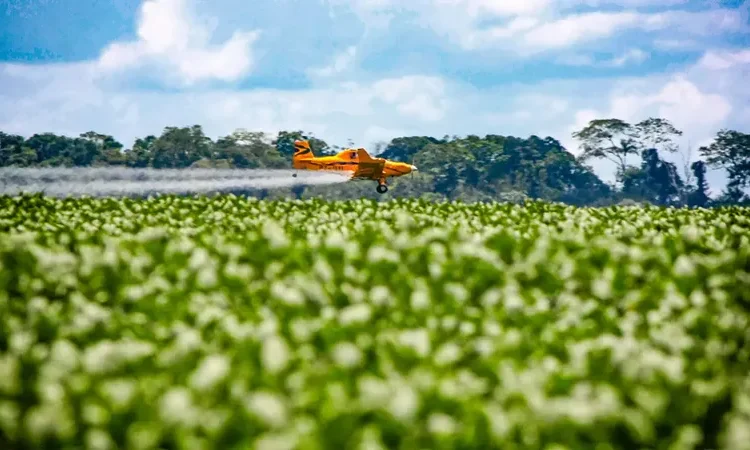Brazil already uses more pesticides in its plantations than China and the US together. That’s what a survey by the United Nations Food and Agriculture Organization (FAO) shows.
The data released by the FAO refer to 2021. According to the agency, in that year, 719,500 tons of poison were used to combat plagues on Brazilian plantations. Also in 2021, China – whose population is almost seven times bigger than the Brazilian population – used 244,000 tons. The US used 457,000 tons. Together, the two countries used 701,000 tons of pesticides.
According to the FAO data, Brazil is the top one country in the use of pesticides, followed by the US. Indonesia, which used 283,000 tons of poison on plantations – half of what Brazil used – is the third largest consumer in the world.
Brazil uses 10.9 kg of pesticides for every hectare of crop (10,000 m²). The US uses 2.85 kg/ha and China, 1.9 kg/ha.
In 2021, 3.31 kg of pesticides per person were used in Brazil. In the US, it was 1.36 kg per capita; in China, 0.17 kg per capita.
Agribusiness model
To Gerson Teixeira, an agronomist and the director of the Brazilian Agrarian Reform Association (Abra, in Portuguese), numbers like the abovementioned show how Brazil's agriculture production is becoming dependent on pesticides due to choices of production methods.
In an interview with Brasil de Fato, Teixeira explained that, decades ago, Brazil adopted an agribusiness production model aimed at exports, mainly soy. That has made the country the second largest exporter of agricultural products in the world, according to the FAO, behind only the US.
Soybean crops are highly dependent on fertilizers and pesticides, Teixeira said. It has increased the use of this type of poison in Brazil.
According to the FAO, in 1990, Brazil consumed 51,100 tons of pesticides per year. In 31 years, this amount rose 1,300%.
"Brazilian agribusiness thought that GM soya would reduce the need for poison and fertilizers," said Teixeira. "In fact, it has increased its dependence on both."
World Bank data tabulated by Teixeira shows that Brazil is already the second largest consumer of fertilizers in the world when considering the number of kilos applied per hectare of crops, behind China.
Of the total fertilizer used in Brazilian agriculture, 87% is imported, according to the National Association for the Diffusion of Fertilizers (Anda, in Portuguese). According to the FAO, Brazil is the world’s largest importer of fertilizers, responsible for 18% of all imports. The US consumes 13% and China 5%.
Brazil is also the leader in pesticide imports: there were 283,000 tons imported in 2022, according to the Brazilian Institute of Environment and Renewable Natural Resources (Ibama).
Health risk
Due to the growing use of pesticides in the country, every two days, a person dies from poisoning in Brazil. One out of five victims is a child or teenager under 19. This information is in a report published in 2022 by the European environmental network Friends of the Earth Europe.
According to the organization, European agrochemical companies such as Bayer and Basf work together with the Brazilian agribusiness sector to boost the use of poisons in Brazil disregarding the harm they cause to people’s health.
Larissa Bombardi, a professor in the Department of Geography at the University of São Paulo (USP), wrote in her book “Pesticides and Chemical Colonialism” (Elefante publisher house) that Europe concentrates a third of the world's pesticide production. European authorities, however, have already banned the use of 269 types of pesticides because of the damage they cause to health. In countries like Brazil, the number of pesticides banned is less than 30.
Of the top-10 bestseller pesticides in Brazil, five are banned in the European Union, said Bombardi. "While the area planted in the country grew by 29% from 2010 to 2019, the use of pesticides grew by 78%," she said in a lecture given in Curitiba last year.
"This kind of agriculture is bad for the population and the planet," she said. "Only agrarian reform focused on agroecology can offer a solution."
The National Confederation of Agricultural Workers (Contag, in Portuguese) is part of the Permanent Campaign Against Pesticides and For Life, and has several actions in partnership with organized civil society and social movements to warn of the danger of pesticides and to seek to increase control and reduce their use.




